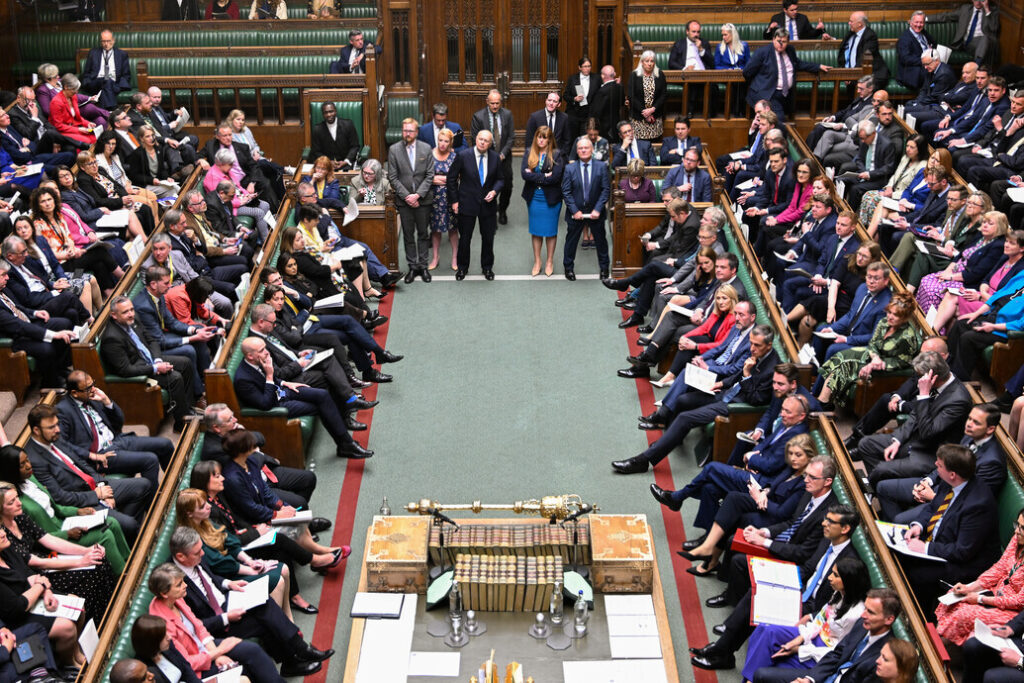
Connect
An update from our Parlimentary Advisors
The House of Lords held a debate on the Economic Affairs Committee Report, National Debt: It’s Time for Tough Decisions.
Lord Liddle (Labour):
- We have to attack bureaucracy, as we are now doing in the National Health Service. We have to take on vested public interests. Being fiscally tough does not rule out fairness.
- One thing that I would like to see in future is a redistributive package which addresses child and pensioner poverty.
Lord Burns (CB):
- The report outlines some of the challenges to debt sustainability. These include continuing high debt interest payments by government and adapting to an ageing population, which is the subject of our current inquiry.
Lord Lamont of Lerwick (Con):
- Then there is the significant risk of an ageing society. We are living through a period that is unique in world history. By 2070, one person in work will be equalled by one person in retirement. This poses huge problems fiscally. The dependency ratio will go up
- The fiscal challenge of an ageing society is massive.
Lord Forsyth (Con):
- The lesson of this report is that our people have no idea of the crisis that is facing our country and the threat that it presents to our ability to deliver pensions and important public services.
- The notion that we can finance the triple lock on pensions, however popular it may be, is ridiculous in these circumstances. We need to get the country to understand that and to lower its expectations for the future.
Lady Browne of Ladyton (Labour):
- When the welfare state was created, there were around five workers for every pensioner.
- Today, that figure stands at around 3.5, and, as other noble Lords have spoken about, ONS figures suggest that that ratio will narrow exponentially from the 2030s onwards.
Lord Livermore (Financial Secretary):
- The committee’s report covers the longer-term challenges of getting debt to fall.
- These include the impact that demographic shifts, such as an ageing population and a rising dependency ratio, will have on the public finances, as my noble friends Lord Davies of Brixton and Lord Browne of Ladyton said.
- The Government recognise these challenges, including the rising cost of care, which is set to double in the next 20 years alone.
- That is why, for example, we have established an independent commission, led by the noble Baroness, Lady Casey, to develop a new national care service, able to meet the needs of older and disabled people into the 21st century. We are taking immediate action to stabilise the care sector and invest in prevention, carers and care workers.
***
Work and Pensions Committee – Get Britain Working: Pathways to Work (22/04/2025)-
During the first session of the Work and Pensions Committee on “Get Britain Working: Pathways to Work”, MPs heard from:
- Professor Ben Geiger, Professor in Social Science and Health, King’s College London
- Tom Pollard, Head of Social Policy, New Economics Foundation
- Jean-André Prager, Senior Fellow, Policy Exchange
- Ruth Curtice, Chief Executive, Resolution Foundation
Key takeaways
Drivers of rising case load
- The panellists explained why demand has increased for incapacity and disability benefits.
- Mr Pollard raised scepticism about how the Government’s reforms would change the situation.
- Professor Geiger said there needs to be proper consideration of how reassessments function.
- Professor Geiger stated that rising distress and other things are a part of that, but we have to see non-pensioner welfare spending as a whole. Increasingly, we have seen cuts in most non-pensioner welfare spending, and rising PIP spending has been partly meeting that need.
Financial sustainability
- Ms Curtice said reforms will lead to a slight fall in welfare spending as a share of GDP.
- Mr Pollard warned that cuts to welfare spending can lead to higher spending elsewhere.
Mental health
- Professor Geiger said investment is needed to tackle rising distress levels.
- Mr Prager said that the welfare system needs to be joined up better.
Labour market
- Ms Curtice said that other impacts of welfare changes will outweigh the boost to employment.
- Professor Geiger said that the Government struggles to justify wide-ranging reforms, which the OBR cannot put a number on.
- Ms Curtice added that she wants to see more evidence on the expected impact of reforms.
During the second session of the Work and Pensions Committee on “Get Britain Working: Pathways to Work”, MPs heard from:
- Ruth Patrick, Professor of Social Policy, University of York
- Iain Porter, Senior Policy Adviser, Joseph Rowntree Foundation
- Angela Matthews, Director of Public Policy and Research, Business Disability Forum
Key takeaways
Impact of reforms
- Professor Patrick explained the impact of previous reforms, highlighting the climate of fear and uncertainty that has been created.
- Mr Porter also expressed concern about the reforms.
- Professor Patrick went on to discuss the downsides of conditionality and adversarial relationships.
PIP
- Mr Porter highlighted the worsening mental health of the nation, also discussing the difficulty of the PIP process.
- Professor Patrick emphasised the importance of talking to those with lived experience.
- Ms Matthews explained that PIP is pivotal to the career progress of those with disabilities.
Employers
- Ms Matthews explained that employers need more clarity on their role, especially concerning Access to Work.
Universal Credit
- The panellists agreed that more clarity on reforms to the universal credit health element is needed.
- Mr Porter warned against extending conditionality.
Labour market
- Ms Matthews explained the support those with disabilities need to enter the labour market.
- Professor Patrick said that employers do not like conditionality.
***
Written questions and answers – Written questions, answers and statements – UK Parliament
Julia Lopez (Hornchurch and Upminster): To ask the Secretary of State for Work and Pensions, what the cost to the public purse was of correspondence to inform pensioners about changes to the winter fuel payment.
Torsten Bell (Pensions Minister):
This winter, during a six-week period, the Department communicated with pensioners regarding the change in eligibility for the Winter Fuel Payment and also included an update on its Scottish equivalent. Around 13 million letters were issued to individuals who may have previously had entitlement to a Winter Fuel Payment, and who may have been expecting to receive a letter about the Payment this winter.
The letter informed recipients of the qualifying benefits for receipt of a Winter Fuel Payment and encouraged pensioners to check if they may be eligible for Pension Credit and how to make a claim. Additionally, the letter emphasised other benefits that becoming eligible for Pension Credit may offer, such as assistance with housing costs, energy bills, and a free TV licence for those over 75.
The cost of the exercise was £7.5 million; similar to the cost of sending out letters in previous years, where the Department has written to pensioners about the Winter Fuel Payment.
***
Written questions and answers – Written questions, answers and statements – UK Parliament
Victoria Collins (Liberal Democrat, Harpenden and Berkhamsted):
To ask the Secretary of State for Work and Pensions, what fiscal steps her Department is taking to support pensioners with the cost of living in (a) Harpenden and Berkhamsted constituency and (b) England.
Torsten Bell (Pensions Minister):
The Government is honouring its commitment to the Triple Lock with a recent 4.1% increase to the basic State Pension, the new State Pension, and the standard minimum guarantee in Pension Credit. Over this Parliament (2029/30), the OBR forecasts that the Government spending on the State Pension will rise by over £31 billion.
Pension Credit provides extra money to help with living costs for people over State Pension age and on a low income. The Government is taking significant steps to raise awareness and maximise take-up. We want to ensure as many people as possible have access to this support and urge pensioners to check their eligibility. Pension Credit will passport them to receive other benefits – including help with rent, council tax, fuel bills and a free TV licence for those over 75. Our drive to increase Pension Credit take up has successfully boosted applications with the Department receiving around 235,000 Pension Credit applications in the 30 weeks since July 2024 and making 117,800 new Pension Credit awards over the same period, a 64% increase or 45,800 extra awards compared to the same period in the previous year.
Low-income pensioners and others struggling with the cost of living should contact their local council to see what further support may be available to them. They may be able to receive support from energy support programmes or through the Household Support Fund, a scheme providing discretionary support to those most in need towards the cost of essentials, such as food, energy and water.
The Government has extended the Household Support Fund in England by a further year, (until 31 March 2026) – with funding of £742 million provided to enable this extension in England, plus additional funding for the devolved Governments to be spent at their discretion, as usual.
***
Written questions and answers – Written questions, answers and statements – UK Parliament
Edward Morello (Liberal Democrat, West Dorset):
To ask the Secretary of State for Health and Social Care, what steps he is taking to ensure that funds allocated for resident care in retirement homes are used for the purpose intended.
Due for answer 29 April 2025
***
Written questions and answers – Written questions, answers and statements – UK Parliament
Shaun Davies (Labour, Telford):
To ask the Secretary of State for Work and Pensions, how many foreign nationals who currently live outside of the UK are paid the state pension.
Due for answer by 30 April 2025
***
Written questions and answers – Written questions, answers and statements – UK Parliament
Ian Byrne (Labour, Liverpool West Derby):
To ask the Secretary of State for Work and Pensions, what steps she is taking to ensure the perspectives of older people are included in her Department’s policy decision-making.
Due for answer 29 April 2025












